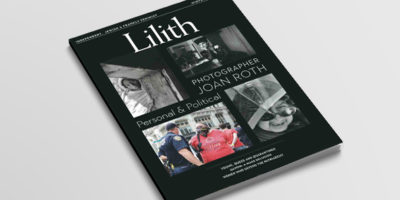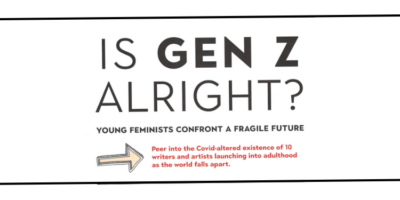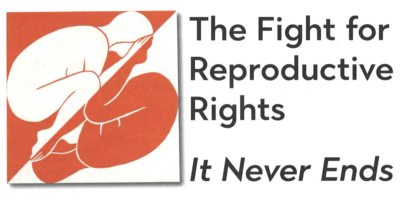
Abortions Every Day: The Feminist Literature of Norma Klein
About three years ago, when I was a senior in high school, I embarked upon a project that I don’t expect to finish anytime soon. Some people read books to be trans-
ported or to feel empathy. I read for those reasons, too, but I also read to conduct
research. Since high school, I’ve actively sought books that I believed would help me answer the question of how I can be a woman in a world that makes being one practically impossible. My plan was to keep reading books until I found an author or character whose womanhood I could emulate perfectly. In the past three years, I’ve read well over 100 books by female authors. My project continues.
In the summer before I went to college, my research led me to a book that in turn led me to Norma Klein, a writer whose scandalous young adult novels of the seventies and eighties earned her a spot on a list of most-banned authors. As she was praised for her precocious feminism, I made it my business to get a hold of her books even though they were mostly out of print. Once I got them, I swallowed them up one after the other after the other. Fortunately, Klein wrote more than 50 books before her premature death at age 50, some of which are for children but most of which are for teens or adults.
No matter how much I read, I never got a straight answer from Klein about how to be a woman. Her female characters, intelligent young (mostly Jewish) women whose families can somehow afford apartments in Manhattan, make decisions with which I often disagree. But while Klein’s feminist literature may not signify an end to my research journey, it offers consolation by presenting characters who, despite being flawed and despite living in a society that is broken, manage to turn out OK, surviving on ruthless introspection and politically incorrect humor.
Take, for example, the teenage heroine of Domestic Arrangements (1981), nicknamed Rusty for her deviant red hair. Rusty’s parents are cheating on each other, she can’t decide whether she actually enjoys sleeping with her boyfriend, and her appearance is constantly commodified by men who can’t resist ogling her. Her parents offer conflicting advice. (She says of her father, “Daddy is a socialist, sort of, meaning he worries about how many poor people there are in the world and feels guilty that he isn’t poor.”)
Rusty is only one of many Norma Klein characters who is sexually active and, like the rest of them, her sexual activity leads to more complicated issues. What should she do if she doesn’t find sex enjoyable? What if she’s annoyed that her boyfriend is so obsessed with it? Is she too young for sex, or have the times changed? If this were any other author, the topic probably wouldn’t be considered to begin with, and even if it were, it might turn out to be a cautionary tale about the fates that await adventurous young women—I think of the Mean Girls scene where the coach says to the high school students, “Don’t have sex, because you will get pregnant and die!” But Rusty doesn’t get pregnant or die. Instead, she finally says to her boyfriend one day when he begins touching her, “I just don’t feel like it.” Before, she says, “I just figured I sort of had to, that you’d be mad if I didn’t… But now that it’s gotten really good, I like the idea of it being special.”
The heroines of Klein’s novels almost always have sex and almost always don’t die. They get pregnant sometimes, but not as a cautionary tale. Some who get pregnant get abortions, and others don’t. In “Pratfalls,” a novella featured in Love and Other Euphemisms (1972), a young woman divorces her husband and enrolls in clown school. When Rachel gets pregnant despite her tipped uterus, she is encouraged to get an abortion because of the stigma surrounding unwed mothers, but she decides against it. In order to make it clear that her decision to have the babies (they end up being twins, of course) has nothing to do with fear of abortion, she asserts delightfully, “I would have an abortion every day in the week… I believe women should have the right to strangle their newborn babies with their bare hands if they feel like it.” She’s not sure who the twins’ father is, but one of the possible fathers is Black and the others are white. At the hospital, when her Black ex-husband asks on the phone “what color” the children are so he can find out whether he’s the father, Rachel wants to mess with him and says “Gee, Edward. I’d send you a swatch, but they’re a little young for skin grafting.” The story ends soon after, but her lighthearted sense of humor suggests that Rachel will end up OK, tipped uterus and single status notwithstanding.
American Dreams (1987), one of the last books Klein published before her passing, follows four characters from their college graduation to middle age. The comedy in this novel isn’t as natural as in Klein’s other novels. The jokes seem out of place next to a scene where an Ashkenazi Jewish immigrant parent says to her child, “If you knew what we know, you wouldn’t want to get out of bed in the morning” and where one of the main characters ends up getting murdered. The twisted humor of this novel is captured when one of the main characters has finally found an editor to publish his short story: “‘You have captured all the sordidness and anomie of city life,’ the editor writes. The writer is confused: “he sent the sordid one somewhere else!” Despite the trauma present in the novel, and despite the fact that life doesn’t turn out like any of the characters expect it to, the characters mostly end up OK—a gay man who used to be suicidal now lives more-or-less happily with his partner in Paris, and a man and woman who divorced both find love again. But the tone of the novel is sad, and the humor forced. How could Norma Klein, the queen of witty banter, write something so sad?
But then again, maybe that’s what Klein’s humor was for all along. Without it, Rusty may not have been able to stomach the creepy comments she got from men, and Rachel might have surrendered to the idea that she couldn’t have kids out of wedlock. And even if they were still able to do what they wanted, they might not have been able to do it as joyfully without their humor. So, how can one be a woman in a world where it’s practically impossible? Nobody knows. But Klein shows that whatever path a woman does take, she’s going to need a sense of humor, even if and perhaps especially if she’s forcing it. And she wants us to believe that everything’s going to be OK—that we won’t be punished for our curiosity, though it might change us for the better.
Lauren Hakimi is a student at CUNY Hunter College, where she studies history
and English literature.




